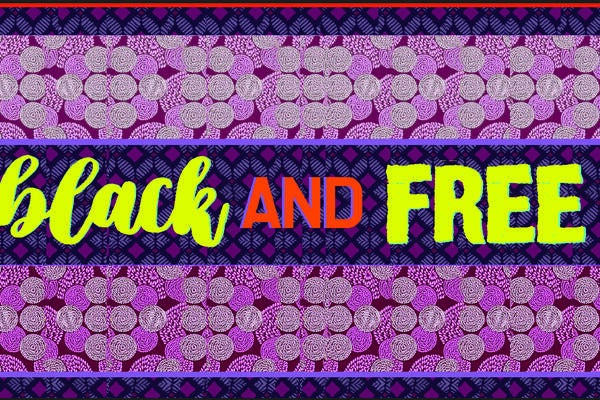
Just hold on
Sociology prof collaborates on hip hop song to help youth learn about the pitfalls of crime, violence and other social challenges

Sociology prof collaborates on hip hop song to help youth learn about the pitfalls of crime, violence and other social challenges
By Wendy Philpott Faculty of ArtsWhen the organizers of a violence prevention program for children and youth invited Dr. Adam Ellis to contribute a recorded lecture to their array of teaching resources, he wasn’t all that keen. Instead, he pitched a hip hop song.
“From a communication standpoint, it was really important for me to get the message out this way,” says Ellis, an assistant professor in the Department of Sociology and Legal Studies.
The song and a short film were created to speak to kids in grades six through nine about the pitfalls of gangs, crime and other social challenges they might encounter. Funded by Victim Services Durham Region, the 2024 Youth Violence Prevention Symposium wrapped up in early March. With last year’s symposium reaching approximately 30,000 Ontario students, the program has strong potential to engage children and youth in learning how to protect themselves from drifting into negative situations.
For Ellis it matters that both the medium, hip hop music, and its creators are authentically connected to the subject matter in order to reach and effectively teach their audience.
Already creating music as part of his research, Ellis asked four fellow artists, Iomas Marad-Marcus Singleton, King Jus, Fresh Kils, and Ice Tha One to collaborate on the song.

All five collaborators have lived experience of social marginalization that directly inform the lyrics of the song. It all came together organically, says Ellis, “with our past lives making it easier to accelerate what we were trying to achieve, because we all get it.” The result is Just Hold On.
I was a beast in these streets
I blame the school system
Child of an immigrant livin the worse condition
Lived experience is key for studying and teaching these issues, and for Ellis, it’s a deal breaker. While researchers of social and other forms of marginalization may go into the community to gather stories for their studies, Ellis says this empirical methodology often leaves “no real pathways for those young people to tell their own stories.”
I feel ya pain
When they treating u like u strange-
An calling you outcha name-
He focuses both his scholarship and work as an artist-musician on youth criminology and systemic barriers to education. In a previous Waterloo story on his pedagogy, he talks about taking education out of the institution and engaging with youth where they are at — in every sense.
One of Ellis’ research goals it to create ways for the people who the subjects of studies to tell their own stories in the dissemination, and in this way contribute to institutional change. He’s using the example of creating Just Hold On in his forthcoming book, Know the Ledge: Taking on the University Industrial Complex, which “challenges mainstream research and pedagogy, including how the education system has blocked marginalized children/youth from ascending into post-secondary education.”
Turn a new page-
From this mental maze-
Shock the critics-
Break the mold-
You can do it-
Come out tha cold-
I know you’re strong-
Part of this work to decolonize education, says Ellis, is advocating to open the institution to more people who have experienced socio-economic marginalization. “I'm hoping to bring a whole bunch of people to the table, including artists and community.” Much of this is inspired by Indigenous communities, he adds. Ellis recently co-founded the Urban Art(z) Lab with the Jessica Rumboldt, Educational Developer, Indigenous Knowledges, with the Centre for Teaching Excellence at Waterloo, to explore decolonizing, arts-based methods as alternative ways of understanding and developing knowledge about social issues.
Contributing a hip hop song rather than a lecture for the violence prevention symposium is powerful example. “I'm showing how knowledge creation and mobilization looks different from people who are part of the hip hop community,” says Ellis. “We created the song to help young people see that they don't need to go down a certain path, and to keep education, and all the good things, as part of their lives.”
When everything goes wrong-
Hold on-
No it won’t be long-
Just Hold on-
Hold on-
You can sing this song-
Jus Hold on-
Till that feelings Gone-
Just
Hold On
Hold On
Hold On
Song and video credit: Iomas Marad-Marcus Singleton, King Jus, Fresh Kils, and Ice Tha One, Adam Ellis.

Read more
Dr. Adam Ellis developing radical approach to teaching and learning

Read more
Indigenous Speakers Series invites Chelsea Vowel to share Indigenous perspectives on how to reflect on the past to create better futures

Designed by Sahra Soudi and Syrus Marcus Ware for the Black And Free Research-Creation Project.
Read more
Professor dedicates her art, research and teaching to understanding Black freedom
The University of Waterloo acknowledges that much of our work takes place on the traditional territory of the Neutral, Anishinaabeg, and Haudenosaunee peoples. Our main campus is situated on the Haldimand Tract, the land granted to the Six Nations that includes six miles on each side of the Grand River. Our active work toward reconciliation takes place across our campuses through research, learning, teaching, and community building, and is co-ordinated within the Office of Indigenous Relations.